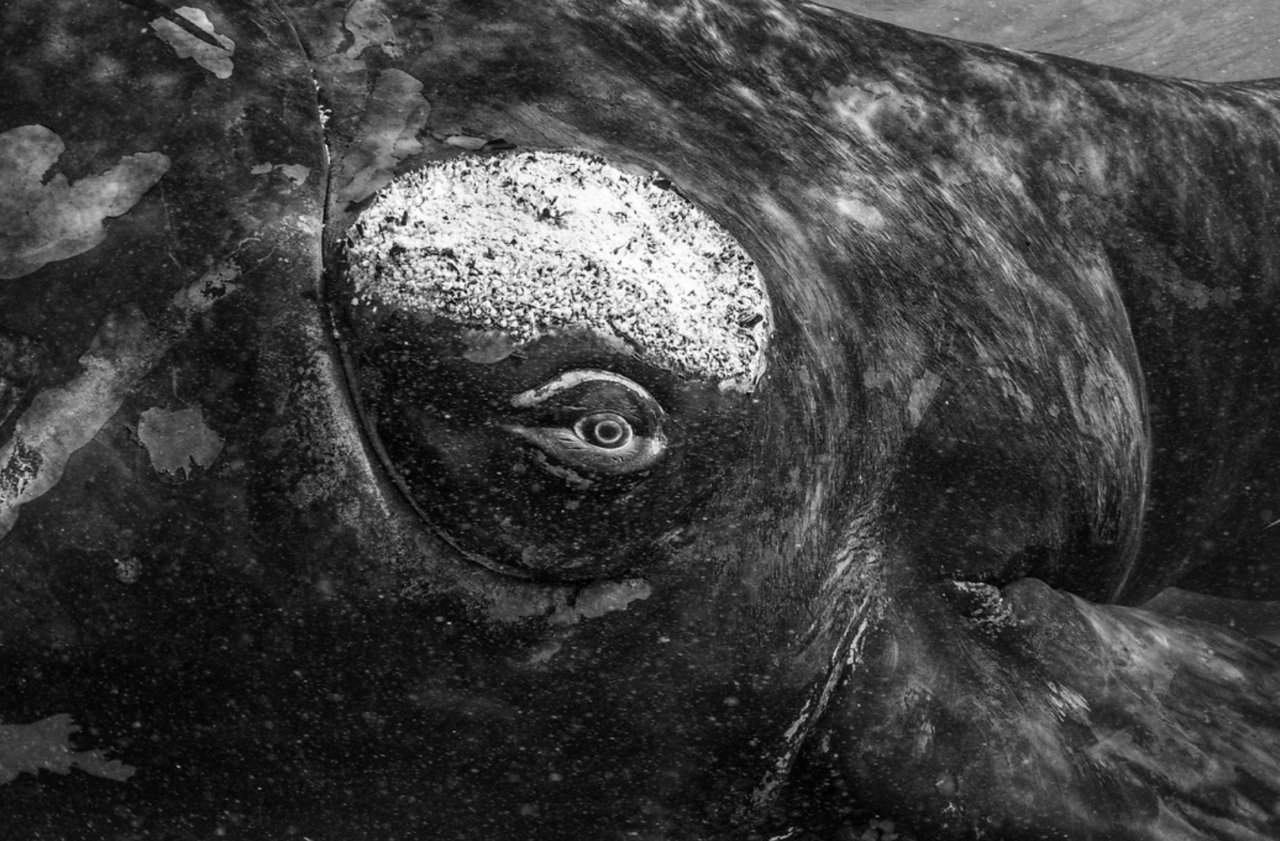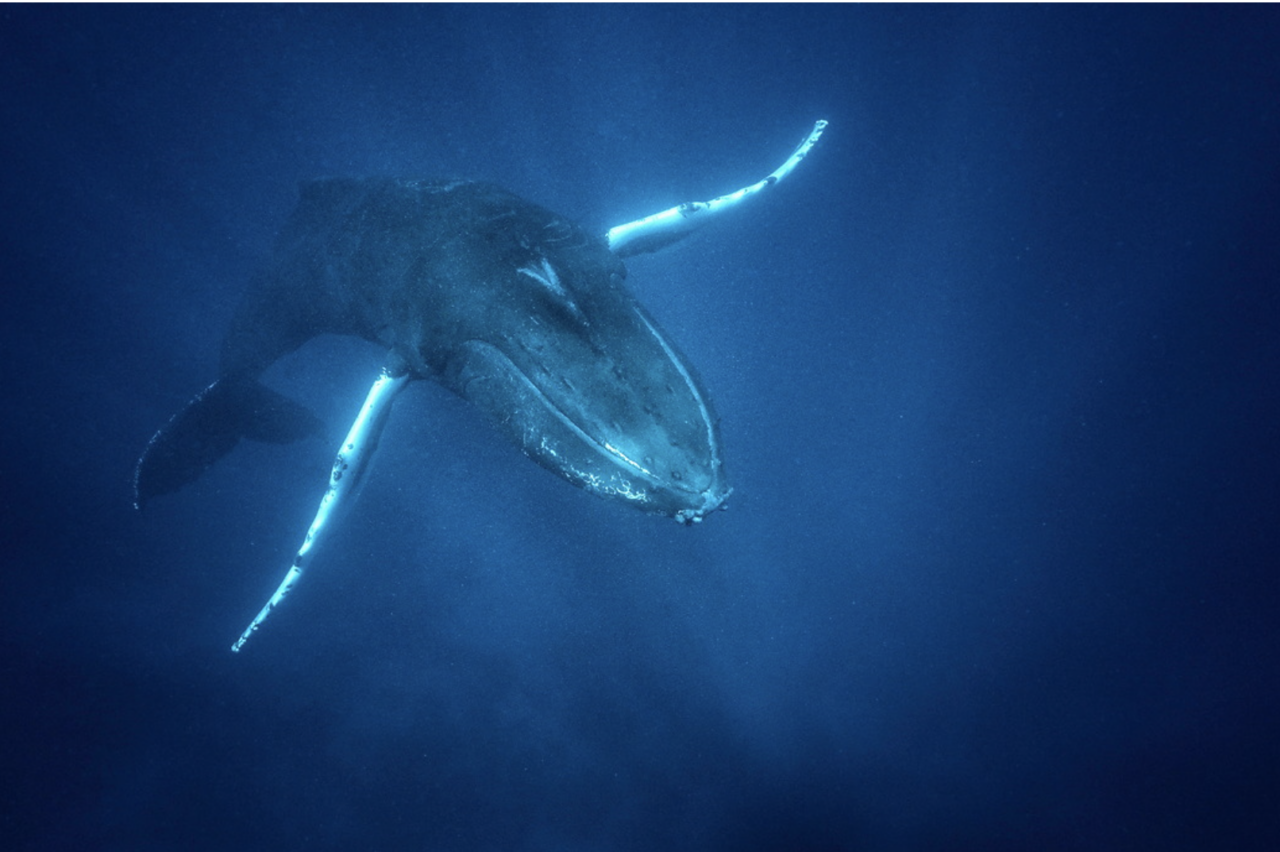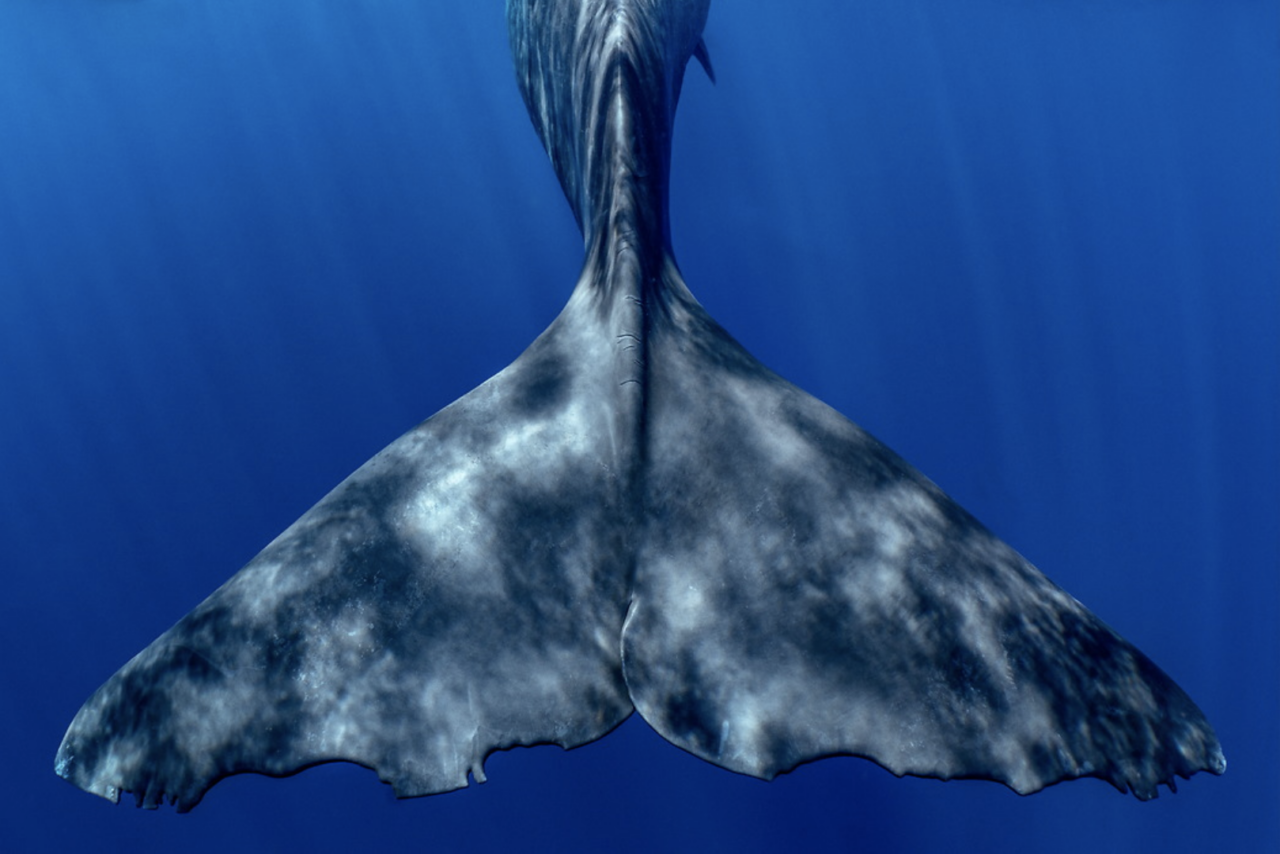
WORDS BY MERE TAKOKO
Photographs by Cristina Mittermeier
The salty spray of Hinemoana, goddess of the ocean, kisses my face as I stand at the edge of our whenua (land), gazing out at Te Moana nui a Kiwa, the vast Pacific Ocean. The ostinato of its waves has lulled generations of my people, Ngāti Porou, to sleep; its bounty sustained our people since time immemorial. But a disquiet stirs within me, a growing dissonance in the familiar symphony of the moana. The once vibrant songs of the whales, the melodic whispers of my ancestors carried on the currents, are fading. An unsettling silence creeps in.
The stories of Te Ao Māori (the Māori worldview) are etched in the very fabric of my being. I’m a descendant of Maui, the demigod who fished up the North Island, and Paikea, our courageous ancestor who rode a whale to our new home.
Across the Pacific, Indigenous peoples have always lived in harmony with the moana. It’s not just a source of sustenance, but a living ancestor, a repository of knowledge passed down through generations. Mātauranga Māori, or Indigenous knowledge, guides us in understanding the delicate balance within the ecosystem. Whales aren’t just resources to be exploited, but sentient beings and our ancestors. My whakapapa (genealogy) is intricately woven with the moana; its mana (spiritual essence) flows through me. My work to protect the oceans comes from deep within.
In 2022, I established the Hinemoana Halo Ocean Initiative, a movement named in honor of our ocean goddess and born from our collective love and respect for Te Moana nui a Kiwa. Our vision is to create a Hinemoana Halo for the whales, a shield against the threats that endanger their very existence. It is a message that has garnered support from kings and paramount chiefs across Polynesia.

Whales aren’t just resources to be exploited, but sentient beings and our ancestors.
Our approach braids mātauranga Māori with scientific data to gain a deeper understanding of whales’ behavior, migration patterns, and habitat needs. This holistic approach forms the foundation for our conservation strategies.
One of the core pillars of the Hinemoana Halo Initiative is the establishment of rāhui, or customary marine protected areas. These dynamic sanctuaries will work with industry to reduce harmful impacts from threats like trawling and ship strikes. Within these safe havens, whales can freely breed, feed, and navigate their migration routes without fear.
Empowering coastal communities as kaitiaki, or guardians, is another vital element. We, the descendants of those who first navigated these waters, hold a deep understanding of our local ecosystems. Our knowledge of currents, breeding grounds, and seasonal patterns is invaluable. By providing us with the resources and authority to manage our ancestral waters, we can become stronger protectors of the whales and the moana as a whole.
Protecting whales benefits everybody. Each great whale sequesters, on average, 33 tons of carbon, and they take that with them to the ocean floor, far away from our atmosphere, after they die. Their feces fertilize phytoplankton, which are the basis of all marine food webs and the source of oxygen for every other breath we take. Thanks to their ecological and economic services, each great whale is valued at over $2 million, according to a study by the International Monetary Fund. The value of the world’s whale stock easily exceeds $1 trillion.
As I write this, my heart gives thanks to the Māori tribes who have worked tirelessly to ratify the He Whakaputanga Moana, or Declaration for the Ocean, which will be signed during a ceremony in Rarotonga tomorrow by Indigenous leaders from Aotearoa (New Zealand), Cook Islands, Tonga, Tahiti, Hawaii, and Rapanui in the presence Tou Travel Ariki, the Kaumaiti Nui (president) of House of Ariki, and Tūheitia Potatau Te Wherowhero VII, the Māori King.
This groundbreaking document—a testament to our collective efforts—represents a paradigm shift in the legal relationship between humans and whales. It goes beyond traditional conservation measures by recognizing whales as legal persons with inherent rights. This includes the right to freedom of movement, a healthy environment, and the ability to thrive alongside humanity. This revolutionary concept, inspired by the Te Urewera Act of 2014 in New Zealand which granted legal personhood to the Te Urewera forest, reflects the growing respect for Indigenous knowledge systems and their significance in environmental protection on a global scale.
By providing us with the resources and authority to manage our ancestral waters, we can become stronger protectors of the whales and the moana as a whole.
The He Whakaputanga Moana declaration, while not a binding international treaty, carries significant weight. Already, it has sparked a global conversation about the legal and ethical status of whales. For example, at COP28, Pacific Indigenous leaders, backed by the Māori King and others, called for global recognition of whale legal personhood. There’s even a growing movement to appoint whales as ocean ambassadors to the United Nations.
The songs of the whales are more than just beguiling melodies; they are a barometer of the ocean’s health. Their diminuendo is a wake-up call, urging us to mend the broken relationship with Te Moana nui a Kiwa. We must move from a paradigm of exploitation to one of coexistence and kinship. This requires a global awakening, a recognition of our interconnectedness with all living beings.
To succeed, we need collaboration on a grand scale. With the support of Conservation International, Indigenous leaders, and coastal communities, we are extending our hand of friendship to scientists, policymakers, and all those who call the Pacific home. Every person can make an impact, too, regardless of occupation. By embracing sustainable practices in our daily lives, reducing our environmental impact, and advocating for change, we can all become responsible kaitiaki of Te Moana nui a Kiwa.
Hand in hand, we can create a future where the unearthly songs of whales once again travel across the expanse of Te Moana nui a Kiwa—a world where whales are no longer silent sentinels, but vibrant voices echoing our commitment to a healthy ocean, their refrains harmonizing scientific knowledge, ancestral wisdom, and unwavering passion.
I dreamed of such a future as I stood where our whenua meets Te Moana nui a Kiwa. I imagined schools of children swimming alongside playful dolphins in crystal-clear waters, their laughter blending with the rhythmic splashes of humpback whales breaching in the distance. I pictured Polynesian voyaging canoes and science research vessels supplanting freighters and trawlers. In the distance, I heard the dissonance of our ailing sea finally resolving to its tonic chord, the dulcet tunes of my ancestors once again echoing for generations to come.

A Descendant’s Call for Whale Legal Personhood

